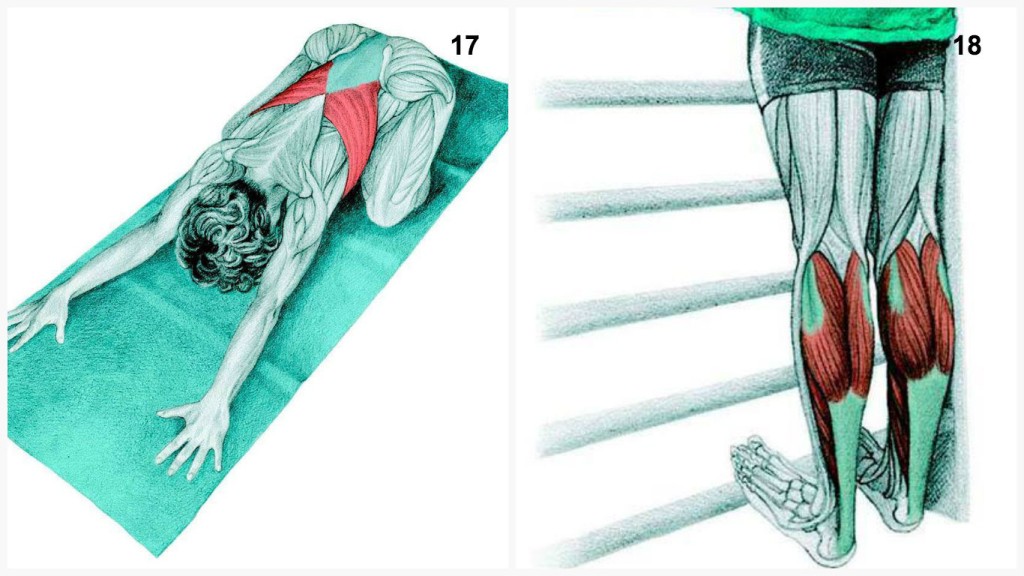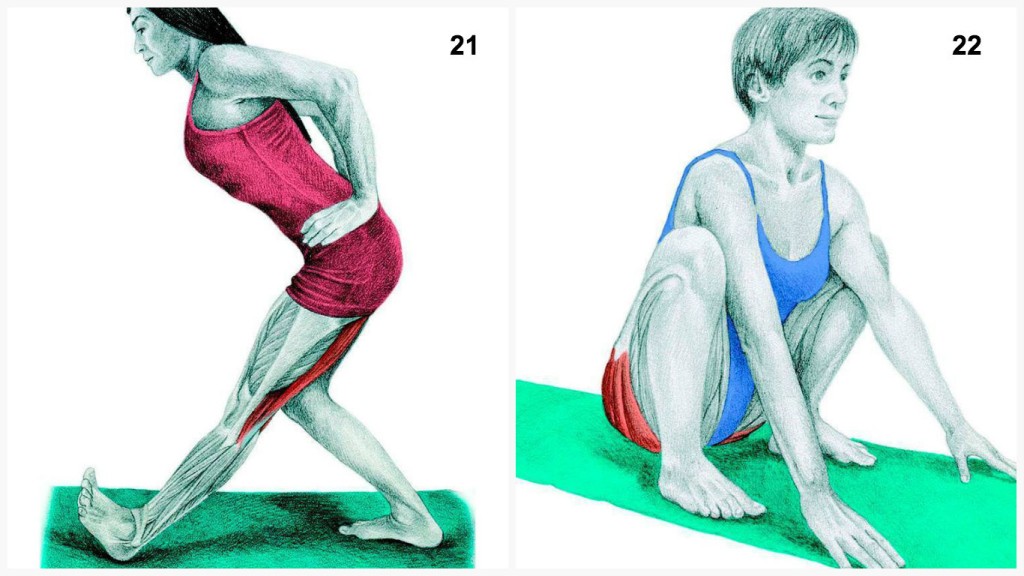36 Pictures To See Which Muscle You’re Stretching

15. Lat Stretch with Spinal Traction
Muscles emphasized: latissimus dorsi. Begin by taking a firm grip on a bar and slowly lifting your feet off the ground. The stretch needs to be felt in your chest and lats. In case you have totally taken your feet off the ground, you will feel traction in your lumbar spine. If you have recently undergone a shoulder injury or you have impingement of the shoulder, do not perform this stretch.
16. Lat Stretch at the Wall
Muscles emphasized: latissimus dorsi. Put your both hands on the corner of a wall or post. Maintaining your spine prolonged, push your hips out to the side in a slow manner. If you have problems with your lower back, do not perform this stretch.

17. Child’s Pose
Muscles emphasized: latissimus dorsi. Being on the ground with your hands and your knees on the floor, slowly bring your hips back until your forehead is on the floor. If you want a better stretch in your hips, you should bring your knees wider. Your upper back should be positioned in the shape of an arch, and then you should externally rotate your shoulders to stretch your lats and chest muscles.
18. Standing Calf Stretch
Muscles emphasized: soleus and gastrocnemius. This stretch can be performed on a rack or on the edge of a stair step. Rotate your ankles a bit towards inside and outside to actively stretch your calf muscles.

19. Front Split
Muscles emphasized: psoas and hamstring. This stretch is not suitable for beginners, as it is kind of advanced, and it should be performed with caution, especially if you have any hip problems. Begin in a position of kneeling lunge. It can also be beneficial if you have the support of a chair while your hip flexors and hamstrings release.
20. Seated Forward Fold / Seated Toe Touch
Muscles emphasized: hamstrings and calfs. Sit into your seat bones and bend your knees if you need to. Your legs will become stronger as your flexibility gets better. Make sure your spine is as straight as possible, especially if you have back problems. This stretch can also be done lying down on the back, with your feet up the wall.

Continues on page 4…
